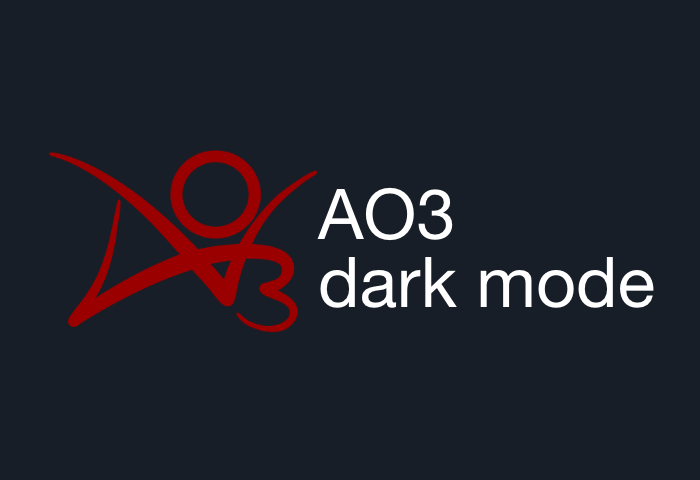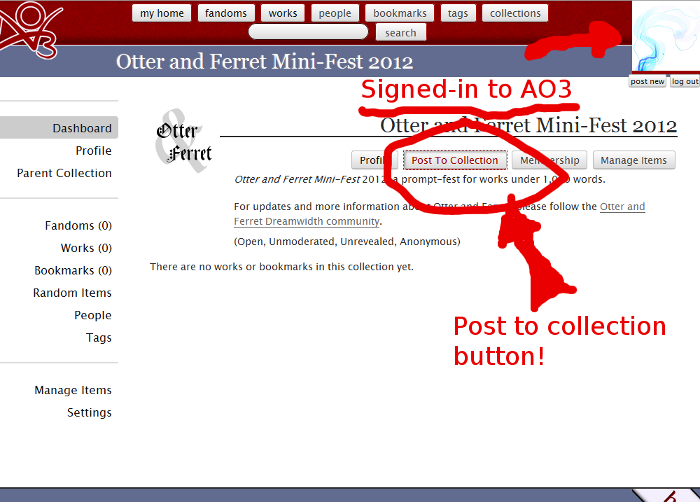Introduction to Fanfiction
Fanfiction has long been a vibrant and creative outlet for passionate fans. From the early days of scribbled zines passed around at conventions to the expansive online platforms we see today, fanfiction has evolved tremendously. One platform that stands out in this evolution is Archive of Our Own, commonly known as AO3. This site transformed how stories are shared and fostered a welcoming community for writers and readers alike. As we dive into the journey of fanfiction—its roots, its growth, and how AO3 played a pivotal role—prepare to explore a world where imagination knows no bounds.
The Early Days of Fanfiction: Zines and Mailing Lists
Fanfiction has roots that stretch back to the early days of fandom, where creativity flourished in the form of zines. These homemade magazines were crafted by passionate fans who shared their stories, art, and theories about beloved characters and worlds.
Zines created a sense of community long before the internet became ubiquitous. Fans exchanged copies through mailing lists or at conventions, fostering friendships along sharing ideas.
Mailing lists also played an essential role. They provided forums for discussions and story exchanges among dedicated readers and writers alike. Enthusiasts could connect over favorite ships or plot twists in real time.
However, both zines and mailing lists had limitations: accessibility was often restricted to those within certain circles. This exclusivity made it challenging for many talented voices to be heard outside their immediate communities. The landscape was ripe for change as technology continued its relentless advance into every facet of life.
The Rise of Online Fanfiction Archives
As the internet blossomed in the late 1990s, fanfiction found new life online. No longer confined to zines and mailing lists, writers could now share their stories with a global audience.
Dedicated websites emerged, creating spaces for fans of all genres. These platforms allowed authors to post their work instantly and readers to explore an endless array of narratives.
This shift democratized storytelling. Fans from diverse backgrounds contributed unique perspectives, enriching the fandom experience immensely.
In this digital landscape, communities are formed around shared interests. Interaction flourished through comments and feedback loops that encouraged growth among writers.
The rise of online archives heralded a new era where creativity thrived without traditional constraints. For many, these sites became homes filled with imagination—a sanctuary for both aspiring authors and avid readers seeking solace in familiar worlds.
The Creation of Archive of Our Own (AO3)
The creation of Archive of Our Own, commonly known as AO3, marked a pivotal moment for fanfiction. Founded in 2008 by the Organization for Transformative Works (OTW), it aimed to provide a haven for writers and readers alike.
This platform emerged from a need. Fanfiction communities were fragmented, and scattered across various websites that often lacked adequate support or structure. AO3 was designed to bring everyone together under one roof.
With its user-friendly interface and innovative tagging system, authors could share their work without fear of censorship. This encouraged creativity and diversity in storytelling.
Moreover, AO3’s non-profit status meant that users wouldn’t be bombarded with ads or monetization schemes. It became an inclusive environment where every type of fandom could thrive while respecting the rights of creators.
As more fans flocked to this new hub, it quickly transformed the landscape of fanfiction writing and reading experiences forever.
AO3’s Unique Features and Community Guidelines
AO3 stands out due to its user-centric design and comprehensive features. One of its most notable aspects is the tagging system. Writers can use tags to categorize their stories, making it easier for readers to find exactly what they’re looking for.
The platform allows for a wide range of content types, from fanfiction to original works. This flexibility encourages creativity across genres.
Community guidelines are clear and inclusive. AO3 emphasizes respect among users and prohibits harassment or discrimination in any form. Such an environment fosters a sense of safety that many creators value deeply.
Another unique feature is the ability to leave anonymous comments on stories, promoting honest feedback while protecting reader privacy.
These elements combine to create not just a site but a thriving community where diverse voices can share their passion freely.
Impact on the Fanfiction Community and Beyond

AO3 has profoundly reshaped the fanfiction landscape. It created a welcoming space for writers and readers alike. The platform fosters creativity, allowing fans to explore their favorite universes in depth.
One of its significant impacts is community building. Fans connect through shared interests and engage in discussions about their works. This sense of belonging enhances the writing experience for many.
Moreover, AO3 has elevated fanfiction’s status within the literary world. No longer dismissed as mere hobbyist work, it now garners respect and recognition from both authors and publishers.
The archive also encourages diverse voices. Writers from various backgrounds can share stories that reflect their experiences, enriching the tapestry of fan-created content.
This shift in perspective influences not just fandoms but also mainstream literature, paving the way for a broader acceptance of unconventional narratives across genres.
Criticisms and Controversies Surrounding AO3
Despite its many achievements, AO3 has faced its share of criticisms. Some detractors argue that the platform can be a haven for problematic content. This includes stories that may perpetuate harmful stereotypes or romanticize abuse.
Moreover, the sheer volume of work available on AO3 makes navigating the site challenging. New users often feel overwhelmed by the abundance of tags and genres, which can lead to frustrating experiences when trying to find specific content.
The community guidelines have also sparked debates. While many appreciate AO3’s commitment to freedom of expression, others worry about what should be deemed acceptable within fanfiction narratives. Balancing creative liberty with social responsibility remains a hot topic among fans.
Additionally, issues related to copyright and plagiarism frequently arise. Authors from original fandoms sometimes express concern over their work being used without permission in fan-created pieces on AO3.
Future Outlook for AO3 and Fanfiction as a Whole
The future of AO3 looks promising as the platform continues to evolve with its community. New features are regularly introduced, enhancing user experience and engagement.
Fanfiction is gaining mainstream recognition. This shift may lead to increased support for platforms like AO3. We could see more collaborations between creators and fan communities in various formats.
As technology advances, accessibility will improve too. Writers from diverse backgrounds will share their stories more easily than ever before. This diversity enriches the fanfiction landscape.
However, challenges remain on issues like copyright and content moderation. The balance between creative freedom and legal constraints will be crucial moving forward.
With fans advocating for their favorite narratives, AO3 stands at the forefront of this evolution, shaping how stories are told across genres and mediums. The journey ahead promises excitement for both writers and readers alike.
Conclusion
The landscape of fanfiction has transformed remarkably. AO3 stands as a beacon for creativity and expression. It fosters a diverse community where both writers and readers come together.
This platform not only accommodates various fandoms but also encourages unique storytelling methods. The tagging system empowers users to find exactly what they’re looking for, enhancing the reading experience.
Despite facing criticism, AO3 continues to thrive, adapting to challenges while maintaining its core values. This resilience speaks volumes about its importance in the literary world.
As fanfiction evolves further, it will be fascinating to see how AO3 influences new generations of creators and consumers alike. The journey is far from over; it’s just beginning. Every story shared adds depth to this vibrant tapestry of imagination that connects fans worldwide.
Introduction to Fanfiction

Fanfiction is a vibrant and dynamic form of storytelling that allows fans to explore their favorite characters and worlds in new ways. It often serves as a creative outlet for individuals who possess a deep love for books, movies, TV shows, or games.
At its core, fanfiction is about community. Writers share their narratives with readers who have similar interests. This connection fosters creativity and collaboration among enthusiasts.
The genre encompasses countless styles and formats. From short one-shots to sprawling epics, the possibilities are endless. Many stories delve into unexplored character arcs or alternate universes where anything can happen.
This unique format has evolved over decades, reflecting not just changing media landscapes but also shifts in fandom culture itself. The journey from handwritten zines to digital platforms has made fanfiction more accessible than ever before.
The Early Days of Fanfiction: From Zines to Fan Websites
Fanfiction has roots that stretch back to the 1960s. It began in small, passionate communities where fans created zines—self-published booklets filled with stories, art, and commentary about their favorite shows or characters.
These zines were often distributed via mailing lists. Fans would trade issues through the post, fostering a sense of belonging among writers and readers alike. The thrill of receiving a new issue was palpable; it felt like unearthing hidden treasures.
As technology evolved, so did fanfiction. The rise of personal fan websites allowed creators to showcase their work online. This shift opened doors for more people to discover and engage with fan-created content.
However, these early platforms had limitations. Navigating multiple sites could be tedious for readers searching for specific genres or pairings. Audiences craved a centralized hub—a place where all their fandom dreams could flourish without barriers.
The Rise of AO3: A Brief History
The launch of Archive of Our Own (AO3) in 2009 marked a pivotal moment for fanfiction. Developed by the Organization for Transformative Works, it was born from a need for a space that prioritized creator rights and community engagement.
Initially designed as an alternative to existing platforms, AO3 quickly gained traction among fans who sought more control over their work. The site emphasized user-generated content while ensuring that copyright issues were taken seriously.
As writers flocked to the platform, they found new opportunities to explore diverse narratives without constraints. This freedom fostered creativity like never before.
With its robust tagging system and ability to filter stories based on specific interests, AO3 catered to both niche audiences and mainstream fandoms alike. It became not just a repository but also a thriving community where connection flourished through shared passions.
How AO3 Changed the Game for Fanfiction Writers and Readers
AO3 revolutionized the fanfiction landscape. Before its emergence, writers struggled with limited platforms and restrictive posting formats. Now, they can showcase their creativity without constraints.
The user-friendly interface allows anyone to publish stories easily. This accessibility has empowered countless voices in fandom communities.
Readers benefit too. They can explore a vast array of genres and pairings with just a few clicks. The extensive tagging system means finding that the perfect story is simple and enjoyable.
Additionally, AO3 fosters a sense of belonging among fans. Communities thrive as people share their passions for specific shows, books, or games.
This inclusive environment encourages collaboration, allowing writers to connect directly with their audiences like never before.
With features such as bookmarking and comments, readers engage deeply with each piece of work while supporting authors in real time—something that was previously missing from traditional fanfiction platforms.
The Importance of Tagging and Filtering on AO3
Tagging on AO3 revolutionizes how readers discover fanfiction. It allows users to find exactly what they’re looking for:: a specific pairing or a particular theme. The vast array of tags means stories can be categorized in myriad ways.
Filtering enhances this experience even further. Readers can sift through thousands of works based on their preferences, avoiding content that doesn’t appeal to them. This kind of customization is rare elsewhere.
Writers also benefit from tagging. By accurately labeling their stories, they attract the right audience and enhance visibility within niche communities.
The system fosters inclusivity and respect for diverse tastes within fandoms. Everyone has different likes and dislikes, and AO3 acknowledges that by giving power back to the community’s members through these tools.
Together, tagging and filtering create an environment where both writers and readers feel seen—and ultimately more connected to each other’s creative expressions.
Controversies Surrounding AO3
AO3 has not been without its share of controversies. One significant issue revolves around the platform’s approach to content moderation. Critics argue that the site’s commitment to free expression can sometimes lead to problematic works slipping through the cracks.
Another point of contention is related to copyright and plagiarism concerns. Many creators feel uneasy about fanfiction that heavily borrows from their original works, raising questions about ownership and fair use in this unique space.
Additionally, some community members voice discomfort over certain themes in stories available on AO3. These discussions often ignite passionate debates within fandoms, highlighting differing perspectives on what should be permissible.
Despite these challenges, AO3 remains a beloved haven for many writers and readers alike. The ongoing dialogue surrounding these issues illustrates how dynamic and evolving fan culture truly is.
ao3
AO3, or Archive of Our Own, has transformed the landscape of fan fiction. Launched in 2009 by the Organization for Transformative Works (OTW), it emerged as a response to the need for a more inclusive space for fans.
Users can share their stories across countless fandoms. From TV shows and movies to video games and books, AO3 caters to diverse interests. This extensive range attracts readers and writers alike.
The tagging system is one standout feature. It allows users to categorize works with precision. Readers can easily filter content based on genres, pairings, or specific themes they enjoy.
Moreover, AO3 champions creative freedom. Many authors appreciate its commitment to protecting transformative works from censorship. This dedication fosters an environment where creativity thrives without fear of backlash.
As fanfiction continues evolving, AO3 remains at the forefront of this vibrant community.
Conclusion

The evolution of fanfiction has been nothing short of remarkable. From its humble beginnings in zines and mailing lists to the expansive universe created by Archive of Our Own (AO3), the journey reflects a growing community that thrives on creativity and collaboration. AO3 stands out for its unique features, such as tagging systems and user-friendly navigation, making it easier than ever for fans to connect with stories that resonate with them.
Despite its many strengths, AO3 faces challenges too. Criticisms regarding moderation policies and content restrictions have sparked debates within the community. Yet these discussions often result in growth and adaptation, fostering a space where diverse voices can be heard.
As we look ahead, it’s clear that both AO3 and fanfiction will continue to evolve alongside technological advancements and shifting cultural norms. More readers are discovering this vibrant world each day, ensuring that storytelling remains a rich tapestry woven through shared passion.
Fanfiction isn’t just an escape; it’s a celebration of fandom culture itself. And platforms like AO3 ensure that this creative outlet remains accessible for generations to come.



